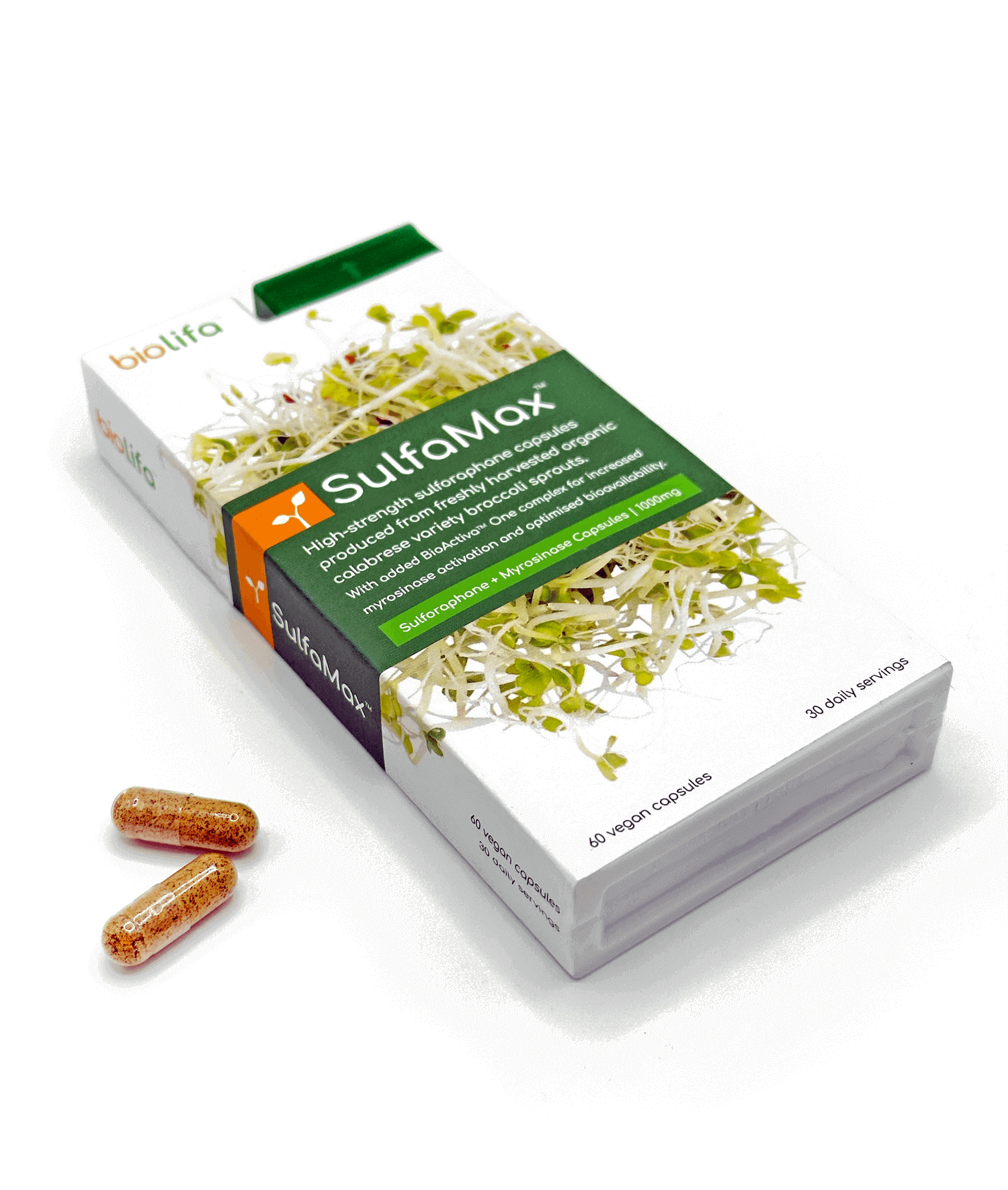The liver is a vital organ responsible for filtering toxins from the blood and producing bile, which aids in the digestion of fats. Sulforaphane has been found to have a wide array of health benefits, including supporting liver health. Some of the ways that Sulforaphane can help:
- Sulforaphane and Detoxification
The liver plays a crucial role in detoxifying harmful substances in the body, including drugs, alcohol, and environmental toxins. Sulforaphane has been found to support liver detoxification by increasing the activity of detoxification enzymes.
Studies have shown that sulforaphane can increase the production of glutathione, a powerful antioxidant that plays a key role in detoxification. Glutathione is produced in the liver and helps to remove toxins from the body by binding to them and facilitating their removal. By increasing glutathione production, sulforaphane may help to improve the liver's ability to detoxify harmful substances.
- Sulforaphane and Inflammation
Chronic inflammation can be harmful and contribute to a number of health conditions, including liver disease. Studies have shown that sulforaphane can reduce inflammation in the liver by inhibiting the production of inflammatory molecules. In one study, mice with liver inflammation were given sulforaphane and their levels of inflammatory molecules were significantly reduced. This suggests that sulforaphane may be beneficial in the treatment of liver inflammation and related conditions.
- Sulforaphane and Liver Disease
Liver disease is a broad term used to describe a number of conditions that affect the liver, including fatty liver disease, hepatitis, and cirrhosis. These conditions can be caused by a variety of factors, including alcohol consumption, obesity, and viral infections.
In one study, rats with liver damage were given sulforaphane and their levels of liver enzymes, which are markers of liver damage, were significantly reduced. Another study found that sulforaphane was able to prevent liver damage in mice that were exposed to a liver-damaging chemical.
While more research is needed to fully understand the potential benefits of sulforaphane for liver disease, these findings are encouraging and suggest that sulforaphane may be a useful tool in the treatment of liver disease.
- Sulforaphane and Liver Cancer
Liver cancer affects thousands of people each year. It is often caused by chronic liver disease, including cirrhosis, hepatitis B and C, and nonalcoholic fatty liver disease. Studies have shown that sulforaphane may have anticancer properties that could be beneficial in the treatment of liver cancer.
In one study, mice with liver cancer were given sulforaphane and their tumor growth was significantly reduced. Another study found that sulforaphane was able to induce cell death in human liver cancer cells. These findings suggest that sulforaphane may be a useful tool in the treatment of liver cancer.
- Sulforaphane and Alcohol-Induced Liver Damage
Alcohol consumption is a major contributor to liver disease and can cause a range of conditions, including fatty liver disease, alcoholic hepatitis, and cirrhosis. Studies have shown that sulforaphane may be beneficial in the treatment of alcohol-induced liver damage.
In one study, rats that were given alcohol and then treated with sulforaphane had reduced levels of liver damage compared to those who were not treated. Another study found that sulforaphane was able to reduce inflammation and liver damage in rats with alcohol-induced liver disease.
These findings suggest that sulforaphane may be a useful tool in the treatment of alcohol-induced liver damage. However, it's important to note that the best way to prevent alcohol-induced liver damage is to limit alcohol consumption and maintain a healthy lifestyle.
Conclusion
Sulforaphane is a compound found in cruciferous vegetables that has a number of potential health benefits, including supporting liver health. It may aid in the detoxification process by increasing the activity of detoxification enzymes and supporting the production of glutathione. Sulforaphane also has anti-inflammatory properties that may be beneficial in the treatment of liver inflammation and related conditions. Additionally, studies have shown that sulforaphane may be useful in the treatment of liver disease, liver cancer, and alcohol-induced liver damage.
While more research is needed to fully understand the potential benefits of sulforaphane for liver health, these findings suggest that incorporating cruciferous vegetables into your diet may be a simple and effective way to support liver health.
So, how can you incorporate sulforaphane into your diet? Eating a diet rich in cruciferous vegetables is always a good idea, as these foods are a natural source of sulforaphane. However, the concentration of sulforaphane in these foods can vary depending on the cooking method and storage conditions.
To ensure that you are getting enough sulforaphane to support liver health, you may want to consider taking a sulforaphane supplement. These supplements are typically made from broccoli sprouts or extracts and can provide a concentrated dose of sulforaphane.
SulfaMax™ is an easy alternative to include sulforaphane into your diet, every single day. However, it's important to consult with a healthcare professional before starting any new supplement regimen.







